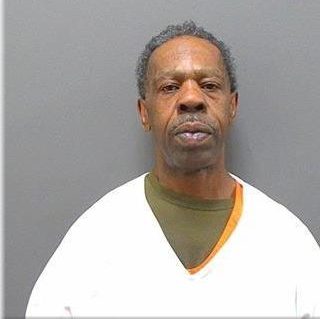Transgender inmate sues for surgery, prison transfer
By: Bridgetower Media Newswires//June 16, 2022//
Transgender inmate sues for surgery, prison transfer
By: Bridgetower Media Newswires//June 16, 2022//
By Laura Brown
BridgeTower Media Newswires
A lawsuit filed against the Minnesota Department Corrections has brought international attention to the treatment of transgender inmates in prison. Gender Justice, a nonprofit advocacy organization in St. Paul, and Robins Kaplan LLP filed a complaint June 6 in Ramsey County District Court on behalf of a transgender inmate.
Christina Lusk is a 56-year-old inmate currently housed at Minnesota Correctional Facility—Moose Lake. She has been housed there since December 2018, when Lusk was sentenced for first-degree possession of a controlled substance. Her anticipated release date is May 23, 2024.
Moose Lake is a men’s facility. Lusk was placed there instead of at Shakopee, the women’s facility. The complaint alleges that Lusk was placed at Moose Lake due to her genitalia, which they claim violates the Minnesota Human Rights Act, the Minnesota Constitution, and the Prison Rape Elimination Act.
In 2008, Lusk came out as transgender. Since 2009, Lusk has been taking feminizing hormones. In 2017, Lusk had a breast augmentation procedure. She legally changed her name to Christina Suzanne Lusk in 2018. Shortly thereafter, Lusk was cleared for genital surgery. However, later that year, Lusk was arrested and sentenced.
Lusk’s gender-affirming surgery has been put on hold until after she is released — what the complaint calls “an arbitrary period of time unrelated to Ms. Lusk’s medical needs.” Some in the media have attempted to sensationalize Lusk’s case, framing the complaint in such a way that a prisoner is suing to get an elective surgery. But Gender Justice and Lusk contend that this is a medical need which is being denied due to her status as an inmate.
Gender Justice states: “Gender-affirming healthcare is life-saving healthcare. People in custody and government facilities deserve access to the medical care they would receive in the community.”
Lusk’s lawsuit seeks order to permit gender-affirming surgery and reassignment to a women’s prison.
Lusk’s complaint also goes beyond the denial of the surgery to allege a larger pattern of discrimination against transgender individuals. Lusk claims that the DOC has refused to acknowledge her legal name that represents her female identity, instead forcing her to use a male name that Lusk legally changed years ago and does not use.
The complaint also states that Lusk has been searched by male staff, despite being approved for female searches only. Staff have allegedly stared at Lusk’s breasts, commented on her breasts, and have watched her change clothing. Although Lusk was issued a bra, when she is sent to segregation, she is apparently forced to wear men’s undergarments.
Most seriously, Lusk has been subjected to repeated sexual abuse in her group cell, the complaint says. She did not report the abuse to staff because “she did not believe they had any interest in protecting her or that they were capable of keeping her safe from reprisal.” Lusk was placed in segregation in 2019 due to suicidal ideations.
Jess Braverman, legal director at Gender Justice, says that this case is larger than just Lusk but sheds light on mistreatment of many transgender people who are currently incarcerated.
“The DOC routinely engages in practices that are harmful to transgender individuals above and beyond the inherent harm of incarceration,” Braverman said.
Gender Justice states that, “Transgender people in state custody are especially vulnerable to discrimination, harassment, and violence. By mistreating transgender people in custody, the state not only harms them, but effectively puts a target on their backs inviting others to harm them as well.”
“If they openly subject transgender people to degrading and harmful treatment, then it sends a clear message that transgender people will not be protected in the DOC and can be mistreated by other incarcerated people with impunity,” Braverman said.
“Ms. Lusk deserves relief and the many transgender people incarcerated in this state deserve policy change the reflects due regard for their safety and well-being. All Minnesotans, including transgender Minnesotans, deserve better from our government,” Braverman said.
In an email response, Minnesota Department of Corrections Director of Communications and Community Engagement Nick Kimball stressed that the Transgender Committee makes recommendations on a case-by-case basis about inmates. The Transgender Committee consists of the DOC’s health services director, behavioral health director, medical director, nursing director, and representatives from the facility where the transgender person is incarcerated. They consider factors such as the incarcerated person’s health and safety, along with whether that person’s placement would cause management or security issues. “Factors such as a person’s security level, current gender expression, medical and mental health needs, and vulnerability to sexual victimization are also considered,” Kimball wrote.
“We are committed to ensuring the safety and well-being of transgender incarcerated individuals and to ensuring no one faces discrimination during the term of their incarceration. The agency has several policies in place to make sure our commitment is carried out and those policies are regularly reviewed and updated as needed,” Kimball wrote.
Braverman said, “People underestimate how difficult is to be a plaintiff in a lawsuit. All the more so for transgender plaintiffs who are subject to a heightened level of scrutiny, invasive and irrelevant questioning, and harmful misconceptions. The best outcome is when we see a favorable shift in how transgender people are treated that obviates the need for litigation to begin with.”
Nearly one in six transgender Americans has been to prison, according to Lambda Legal. One in two black transgender Americans has been in prison. Those who are transgender are overpoliced and have a higher risk than the average person for incarceration. Incarceration rates for cisgender people are less than 3%, according to the Vera Institute.
Legal News
- FBI launches criminal investigation into Key Bridge collapse
- Man charged in slaying after woman’s leg found at Milwaukee-area park
- Minnesota man guilty in fatal stabbing of teen on Wisconsin river, jury finds
- Wisconsin teen sentenced in bonfire explosion that burned at least 17
- Wisconsin man who broke into home, ate victim’s chicken, slept in victim’s bed, receives prison and jail sentences
- Judge refuses to dismiss Hunter Biden’s gun case
- House passes reauthorization of key US surveillance program after days of upheaval over changes
- Milwaukee Police officer traveling to Georgia training retires before facing discipline
- Evers to ask legislature to approve largest increase in state support for UW System in two decades
- 7th Circuit Court of Appeals proposes new rules
- Federal agencies allege toxic work environment for women in new report
- Wisconsin man sentenced for sex trafficking a woman and a minor online
WLJ People
- Power 30 Personal Injury Attorneys – Russell Nicolet
- Power 30 Personal Injury Attorneys – Benjamin Nicolet
- Power 30 Personal Injury Attorneys – Dustin T. Woehl
- Power 30 Personal Injury Attorneys – Katherine Metzger
- Power 30 Personal Injury Attorneys – Joseph Ryan
- Power 30 Personal Injury Attorneys – James M. Ryan
- Power 30 Personal Injury Attorneys – Dana Wachs
- Power 30 Personal Injury Attorneys – Mark L. Thomsen
- Power 30 Personal Injury Attorneys – Matthew Lein
- Power 30 Personal Injury Attorneys – Jeffrey A. Pitman
- Power 30 Personal Injury Attorneys – William Pemberton
- Power 30 Personal Injury Attorneys – Howard S. Sicula











